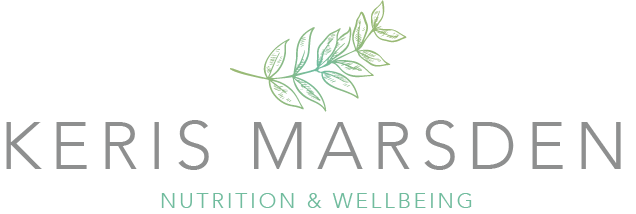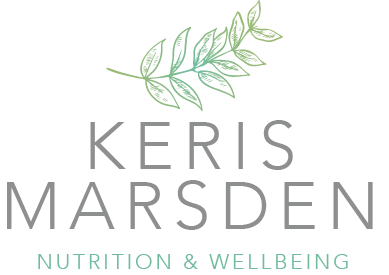Phytoestrogens and menopause
Eating foods that contain phytoestrogens (plant-based compounds), which mimic the effects of oestrogen, has become a popular option for menopause symptoms.
Anecdotally some of my clients swear its helps teir symptoms.
There are also numerous health claims that phytoestrogens may help lower your risk of osteoporosis, heart disease and breast cancer.
It’s important to understand what the research suggests and how you may benefit from including phytoestrogens in your diet.
What the studies say
Despite extensive research there’s still no consensus or consistent evidence to support any of the health claims mentioned above, so it remains questionable whether eating foods containing phytoestrogens is genuinely beneficial.
An analysis of 35 controlled trials conducted on postmenopausal women found soy-isoflavone supplements may lead to a modest increase in estradiol levels; soy foods however, did not provide a significant increase.
Other studies show mixed results with some people reporting an improvement in symptoms such as hot flushes.
This is complicated further by the evidence that the balance of your gut bacteria can influence how the body breaks down and uses phytoestrogens, as shown by a meta-analysis published in the Journal of Medicinal Food in 2019.
This may explain why some people benefit and others don’t, as the composition of your gut bacteria is individual.
In the more robust randomised controlled trials, phytoestrogens don’t have a significant effect compared to placebo (dummy treatment) for the majority of people.
Phytoestrogens and cancer risk
Despite phytoestrogens having weakly estrogenic activity they should still be considered in terms of estrogen related cancer risk.
The research on this topic is very mixed and many studies have observed variable outcomes influenced by the type of cancer, age, type of phytoestrogen and amount consumed.
As these compounds still interact with cell receptors and deliver some estrogen signals, a cancer risk can’t be completely ruled out.
Equally, phytoestrogens could potentially inhibit cancer by blocking the body’s own more powerful forms of estrogen.
If you’ve had breast cancer, are taking breast cancer medications or are concerned about your risk it’s best to speak to a qualified medical professional before increasing your dietary intake or using phytoestrogen supplements.
Are there any other risks regarding phytoestrogens?
Generally trialling phytoestrogens to see if it provides any benefit poses little risks; the main one would be in delaying HRT if you were planning to take it, which could cardiovascular disease risk or compromise your bone health .
How much should you eat?
Research suggests the amount of phytoestrogens that has an effect seems to be around 40mg to 70mg/day or an average of 50mg/day.
This can be obtained from supplements (see below) or food though the phytoestrogen content of food varies (see below).
What foods contain phytoestrogen?
There are two types of phytoestrogens that research has focused on: isoflavones and lignans.
Isoflavones
Research shows isoflavones have the ability to activate estrogen receptors, especially if estrogen levels are low. This means they may be beneficial for premenopausal women with low estrogen or during menopause when levels decline.
Equally they may also block estrogenic activity when the body’s own production has lead to higher concentrations.
Isoflavones are weaker than natural estrogen so when they compete and bind to estrogen receptors it may improve some hormone related conditions like fibroids, endometriosis or PMS.
It’s important to note the effect of isoflavones will also be due in part to how they are digested and metabolised (broken down) by gut bacteria so every individual can respond differently.
Some experience improvements whilst others may feel no change or even a worsening of symptoms.
Isoflavones may also help regulate inflammation.
Soy foods provide the greatest amount per typical serving.
Here’s details of how much you can obtain from soy foods:
edamame beans contain 17.92mg isoflavones per 100g
soy protein isolate (powder) contains 91.05mg of isoflavones per 100g
natto (fermented soy) contains 82.29mg of isoflavones per 100g
tempeh contains 60.61mg of isoflavones per 100g
tofu contains 22.05mg of isoflavones per 100g
miso contains 41.45mg of isoflavones per 100g
Lignans
Most studies focus on ground flaxseed consumption as one of the highest lignan foods. It shows promise with 30g/day being beneficial for helping people with PCOS
Taking 25g of flaxseed daily may support oestrogen balance by helping to maintain levels of beneficial oestrogen and lowering the more biologically active form associated with increased disease risk.
Here are some of the highest lignan foods:
whole flaxseed: 6.1mg to 13.3mg per gram (2tbsp = 16g)
broccoli: 98.51mg per 100g
Brussels sprouts: 49.3mg per 100g
grapefruit: 7.13mg per 100g
apricot: 10mg per 100g
Phytoestrogens, weight gain and digestive health
It’s common to experience changes in digestive health during menopause, so if your gut is feeling a little sensitive be mindful when increasing phytoestrogens.
They’re high in carbohydrate compounds known as FODMAPS (fermentable oligosaccharides, disaccharides, monosaccharides and polyols). These are types of sugars that ferment in the gut, which means they create a lot of gas and bloating.
Apricots, broccoli, Brussels sprouts and legumes such as chickpeas and lentils, are high in FODMAPS and fibre so can be especially problematic for some people.
Similarly, soy-based foods may not sit well with your gut and cause digestive symptoms. Fermented soy products, like natto or tempeh, are prepared in a more traditional way that makes them more digestible, but they could still cause issues.
When it comes to weight management, loading up on carbohydrates, flaxseed or sesame seeds to reach therapeutic amounts may lead to weight gain and dried fruits may not be helpful for blood sugar regulation.
Consider keeping a food and symptom diary to observe how phytoestrogens work for you.
What about isoflavone supplements?
If phytoestrogens are tricky for you digestively or you’re looking to lose weight, you can consider taking isoflavone supplements, usually in tablet form and often as part of a hormone or menopause vitamin or mineral product.
The dose is often higher from supplements so check for any contraindications with prescribed medications or any risk if you have been diagnosed with any health condition.
Work with me
If you’d like more personalised support with menopause nutrition including gut health, weight loss or a targeted supplement plan, you can book a free 15 minute call and discover how we could work together.

